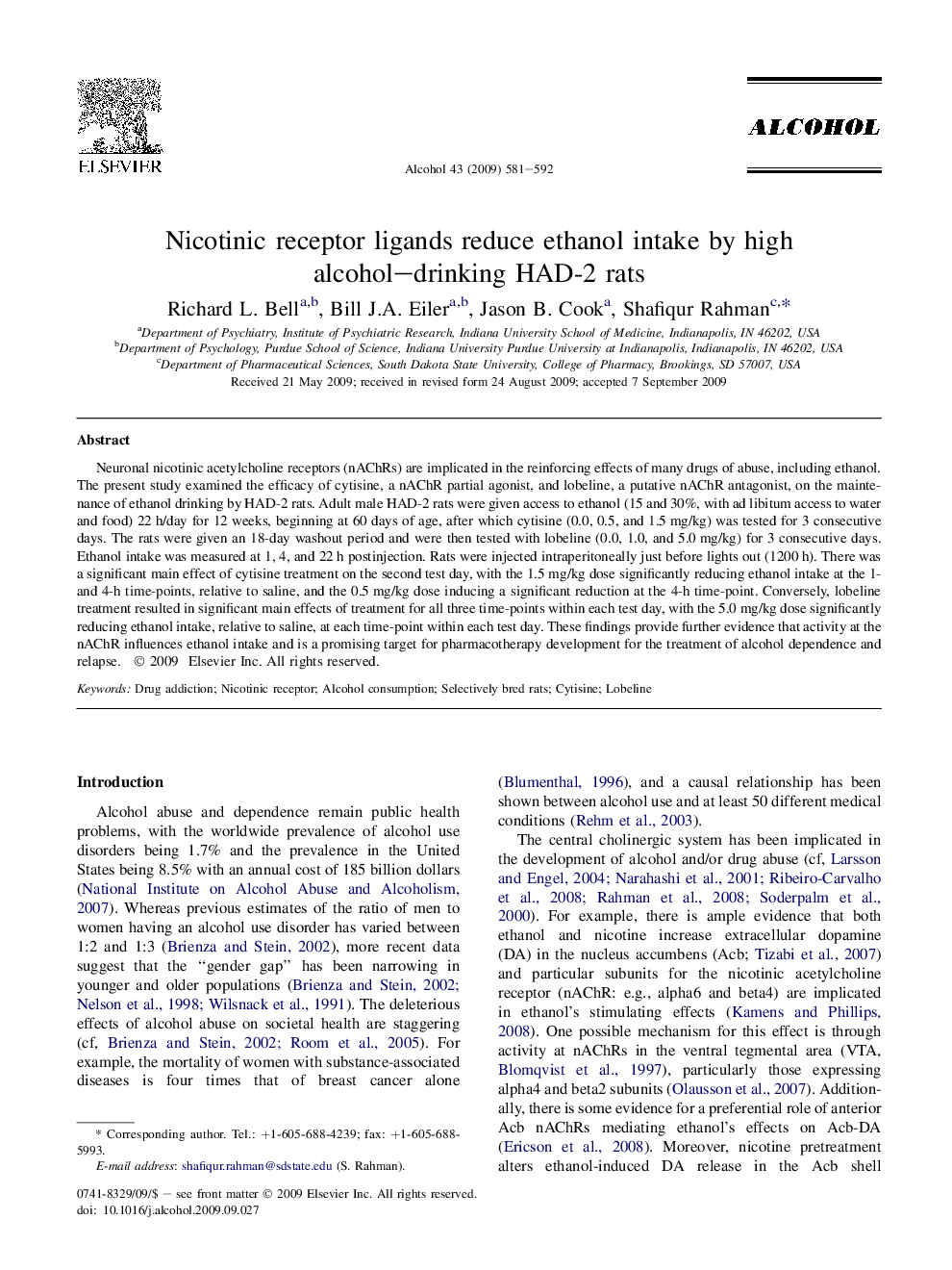| Article ID | Journal | Published Year | Pages | File Type |
|---|---|---|---|---|
| 1067141 | Alcohol | 2009 | 12 Pages |
Neuronal nicotinic acetylcholine receptors (nAChRs) are implicated in the reinforcing effects of many drugs of abuse, including ethanol. The present study examined the efficacy of cytisine, a nAChR partial agonist, and lobeline, a putative nAChR antagonist, on the maintenance of ethanol drinking by HAD-2 rats. Adult male HAD-2 rats were given access to ethanol (15 and 30%, with ad libitum access to water and food) 22 h/day for 12 weeks, beginning at 60 days of age, after which cytisine (0.0, 0.5, and 1.5 mg/kg) was tested for 3 consecutive days. The rats were given an 18-day washout period and were then tested with lobeline (0.0, 1.0, and 5.0 mg/kg) for 3 consecutive days. Ethanol intake was measured at 1, 4, and 22 h postinjection. Rats were injected intraperitoneally just before lights out (1200 h). There was a significant main effect of cytisine treatment on the second test day, with the 1.5 mg/kg dose significantly reducing ethanol intake at the 1- and 4-h time-points, relative to saline, and the 0.5 mg/kg dose inducing a significant reduction at the 4-h time-point. Conversely, lobeline treatment resulted in significant main effects of treatment for all three time-points within each test day, with the 5.0 mg/kg dose significantly reducing ethanol intake, relative to saline, at each time-point within each test day. These findings provide further evidence that activity at the nAChR influences ethanol intake and is a promising target for pharmacotherapy development for the treatment of alcohol dependence and relapse.
